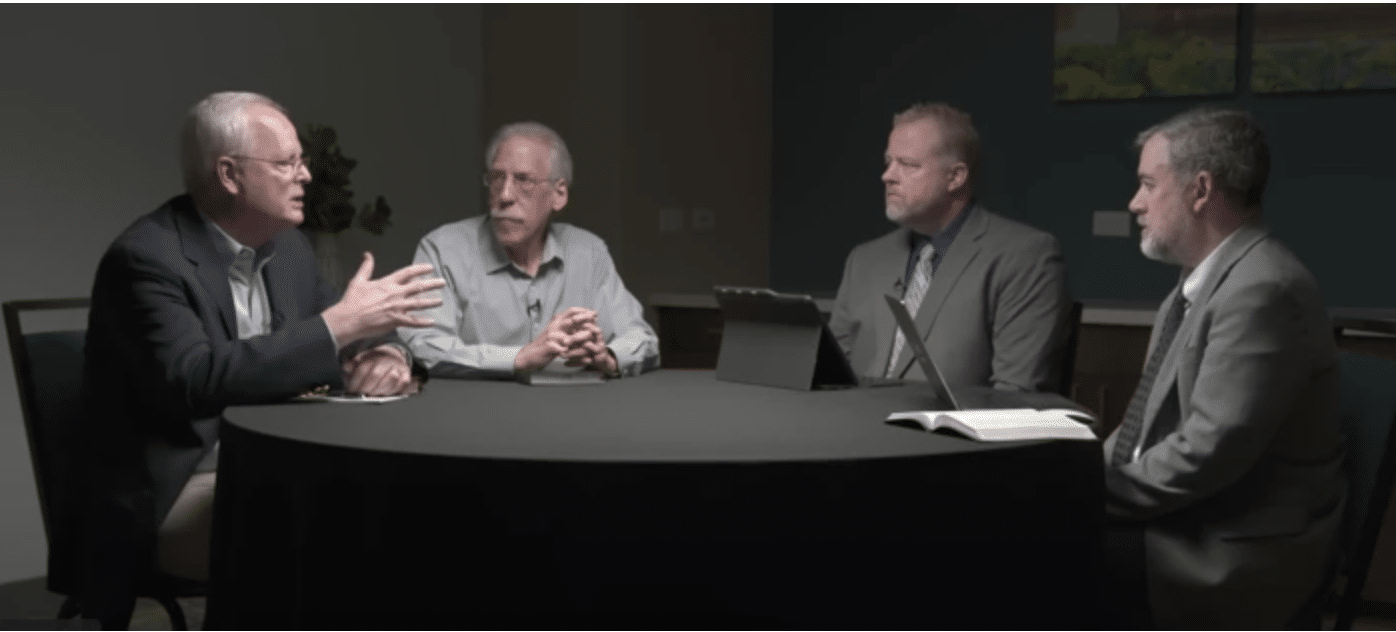(OPINION) Biblical scholars from different theological backgrounds engaged in a vigorous debate over the biblical definition of a “false teacher” and “false prophet” — and whether or not controversial evangelists like Benny Hinn, Mike Bickle and Sid Roth belong in such a category.
In a four-hour roundtable discussion, Justin Peters, leader of Justin Peters Ministries and Jim Osman, author and pastor of Kootenai Community Church, debated the issue with Michael Brown, host of the “Line of Fire” podcast and Sam Storms, pastor emeritus of Bridgeway Church in Oklahoma City.
The first hour of the debate opened with a focus on the biblical criteria for labeling someone a false teacher or prophet, with all participants agreeing that a false teacher promotes heresies that are fundamentally at odds with the core doctrines of Christianity, such as the deity of Christ, salvation by grace through faith and the resurrection.
However, the conversation quickly delved into more contentious territory, with the four men examining whether individuals who have made significant errors in their teachings but later repented could still be considered false teachers.
A significant portion of the discussion centered around Hinn, who has come under scrutiny for his adherence to prosperity theology, teachings on prophecy and supernatural healing.
Both Brown and Storms referred to Hinn as a “brother” they said had made significant errors in his teachings but later repented. The four men debated the effectiveness of such repentance, with Peters and Osman contending that true repentance must be accompanied by a complete cessation of ministry and restitution. Brown and Storms, however, suggested a more nuanced approach that allows for the possibility of genuine change and continued ministry under accountability.
“Speaking personally … I am reluctant to pass judgment on the eternal state of an individual’s soul so long as that individual does not overtly and explicitly deny foundational, biblical fundamental truths of the Gospel,” Storms said.
“They may be quirky in terms of their personality. They may be manipulative in terms of their ministry style. They may have distorted views of money. The whole prosperity gospel, I think we all agree, it’s abominable.
But many of those who affirm it believe they have biblical grounds for it; they actually believe in their heart and their soul that that is God’s design for how Christians are to live. … I’m not going to consign [Hinn] to Hell until I see explicit unrepentant immorality, idolatry and denial of the foundations with faith.”
Osman pointed out that Hinn never publicly repented for teaching a “nine-member godhead” heresy several decades ago and continues to use the prosperity gospel to fleece the poor, which he said qualifies him as a false teacher.
“You think that Benny Hinn is a man who loves Jesus, loves Christ,” Osman said, addressing Storms. “I would submit to you that any man who gives false prophecies, doesn’t care enough about God to put words in His mouth that He does not say, bring reproach on God, who knowingly puts forth false miracles, fake signs and wonders, does that knowingly, intentionally, and for decades tells the poor and sick people, ‘Give me money and God will bless you’ — that’s not someone in my book who loves Christ.
That’s someone who hates Christ. That’s someone who hates the Christ of the Bible. He may love a Jesus that he’s created out of his own image, but he doesn’t love the Jesus of the Bible. Where is the conviction of the Holy Spirit in this man? Where’s the correction?”
The conversation also touched on the dangers of extreme judgmentalism within the Christian community. Storms and Brown expressed concern that the term “false teacher” is sometimes applied too broadly, potentially condemning individuals who hold different but non-heretical views on secondary issues, such as eschatology or the operation of spiritual gifts. This, they argued, could lead to unnecessary division and hinder the church’s mission. (CONTINUE)

















